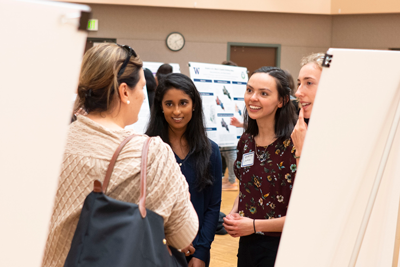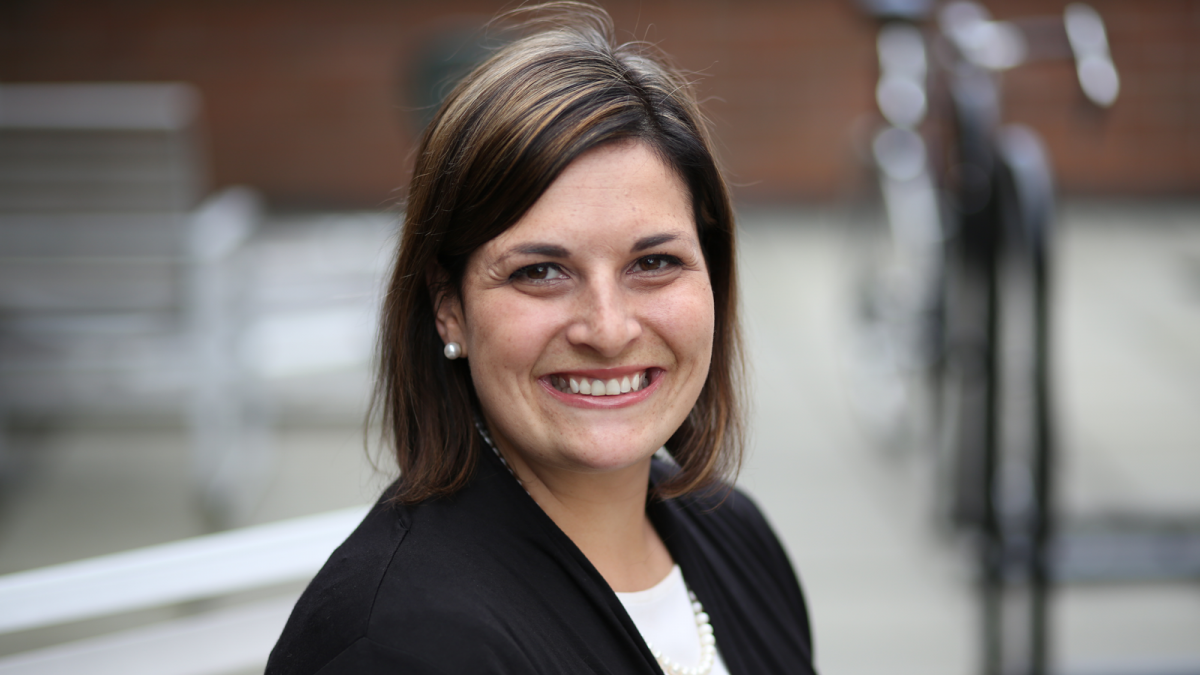Given the extraordinary challenges of this year’s pandemic, the students of the UW Department of Environmental & Occupational Health Sciences (DEOHS) needed a superhero.
Luckily, the department already had one within its ranks. Nicole Errett, DEOHS lecturer and expert on the public health impacts of disaster, has been named the department’s 2020 Outstanding Faculty Mentor.
The annual award is given by the DEOHS Student Advisory Committee (SAC) to a member of DEOHS who has shown particular dedication to mentorship. For the first time, the award was announced via Zoom during an online gathering to celebrate DEOHS graduates last Saturday.
A compassionate guide
Errett’s “superwoman”-like ability to shepherd students through their academic pursuits and future career decisions, combined with her deep concern about their well-being, made her the committee’s choice, said Alexandra Kossik, a DEOHS graduate student and SAC member who did a practicum with Errett.

Errett adapted her teaching and mentorship to support students through the extra hardships of the pandemic, and reached out to students to facilitate discussion about recent events concerning racial inequity and police violence, Kossik said.
“No matter how you know or work with Nicole, she cares deeply about not only your success, but also your happiness,” Kossik said. “She makes it a point to really get to know her students and take the time to listen to them, even though we all know her schedule is incredibly packed. She enjoys and values working with students, but also produces incredible, important and extremely relevant research.”
“Nicole inspires me through her dedication, compassion, and serious attention to detail because everyone knows that when feedback is coming from Nicole you have to brace yourself,” said Renée Codsi, another DEOHS graduate student and SAC member who works with Errett. “But it's something I look forward to because it’s helpful and attainable and stretches my thinking.”
Collaborating on disaster resilience
Errett studies the public health impacts of disasters ranging from hurricanes, tsunamis and wildfires to the current pandemic, seeking to understand how communities respond to these events. She cofounded and codirects the Collaborative on Extreme Event Resilience (CEER), a research lab that works directly with communities to learn about resilience to disasters and climate change.
But the lab is also a learning community and professional academic support group, said Codsi, who was encouraged to join CEER by Errett.
“Nicole creates opportunities for us to collaborate, learn, explore, grow and share with each other,” she said.
For example, Errett recently led a group workshop for CEER students on analyzing qualitative data, including how to conduct interviews, code and interpret data. She paired students up to learn from one another and collaborate. Codsi’s experience coding with fellow grad student Brianna Willis on Willis’s thesis project, under a tight deadline at the peak of the pandemic, gave Codsi skills she will take with her for life.
“Nicole is real with us,” Codsi said. “She sets high expectations and pushes us academically while also showing us that she cares while empowering us.”
“Working with students is one of the best parts of my job,” Errett told Health & Safety Matters, the DEOHS blog, last year. “They bring energy and excitement, and they’re passionate about issues related to disasters. Students bring great ideas about new ways to apply theories and understand real-world disaster problems.”




